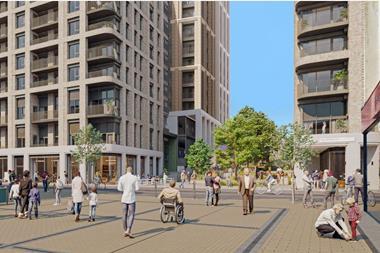Editor: There are inherent differences between build-for-sale (BFS) and build-to-rent (BTR) developments.
With BFS, the developer’s modus operandi is to recover its costs, pay back any development finance and allow invested parties to make a return on their equity. There is a focus on providing immediate returns, with little need to look to the future.
The developer’s responsibility to maintain the property ceases once the unit is sold. The homeowner subsequently bears these costs.
With BTR, developers hold assets for the long term, with the costs of the build being recovered, alongside a profit margin, through the annual rent paid by tenants.
In building something that needs to make a return well into the future, the costs of the property’s upkeep are borne by the asset owner. These costs are spread over time and if the developer is to make a profit, it’s in their best interest to ensure the property stands the test of time.
In BTR schemes, finishes must last to minimise the landlord’s long-term capital outlay. This may result in higher initial spending, but annual profits should increase.
Arguably, in BFS developments, less significance is placed on the longevity of materials and mechanical or electrical services, as post-sale management responsibilities transfer to the homeowner. While this may maximise profitability from the outset, developers run the risk of reputational damage and poor long-term operating efficiency.
As BTR focuses on maximising income streams while BFS looks to minimise expenditure, this highlights the importance of demonstrating quality to protect your business’s credibility.
With this in mind, we hope BFS developers will make changes to the way they approach property investment. At POD, we’ve seen more developers come to understand the importance of brand reputation and longevity in their properties. Investments in defect management, quality control and better communication are becoming more common as developers look to protect their public standing and showcase the long-term quality of developments.
David Goldberg, managing director, POD Management





























No comments yet